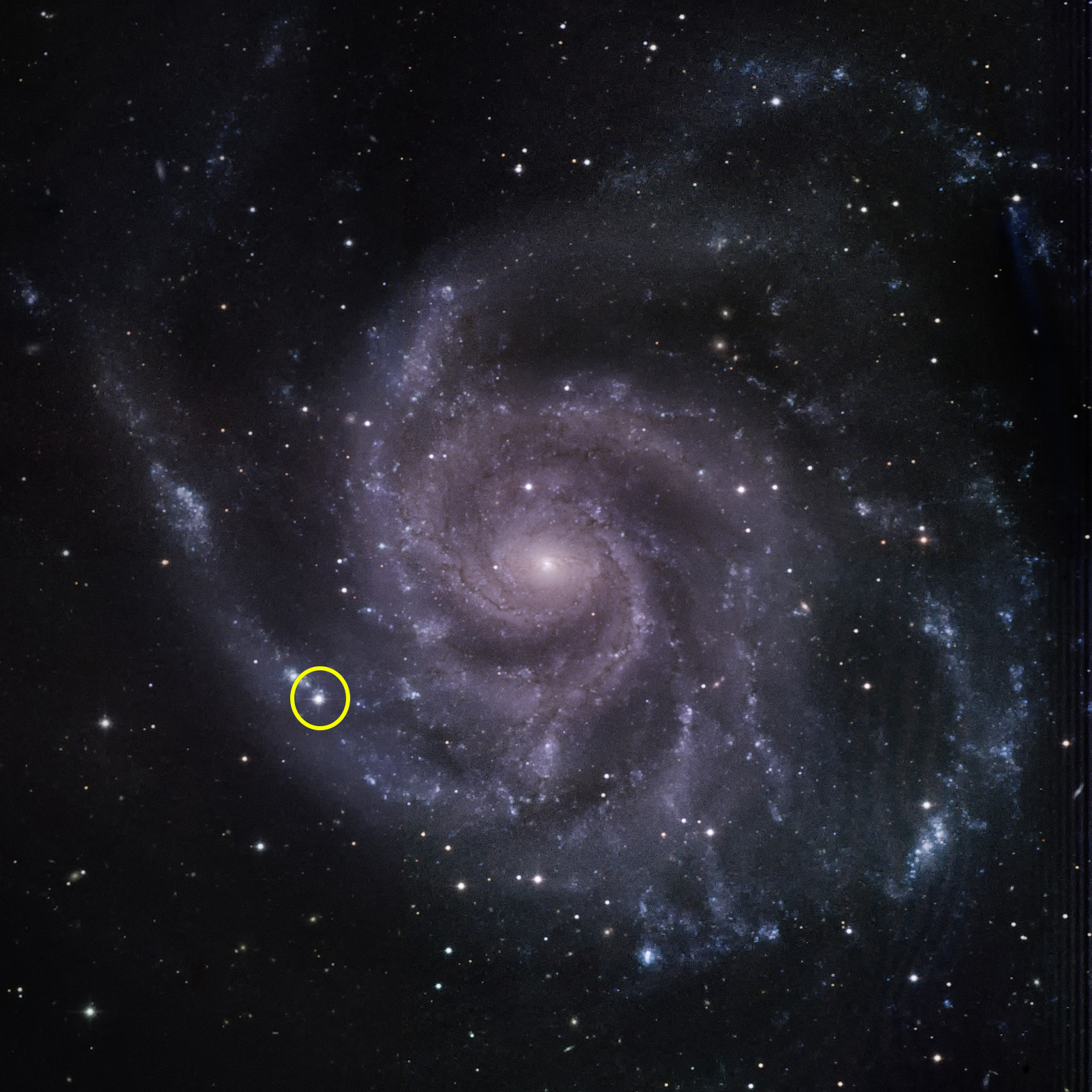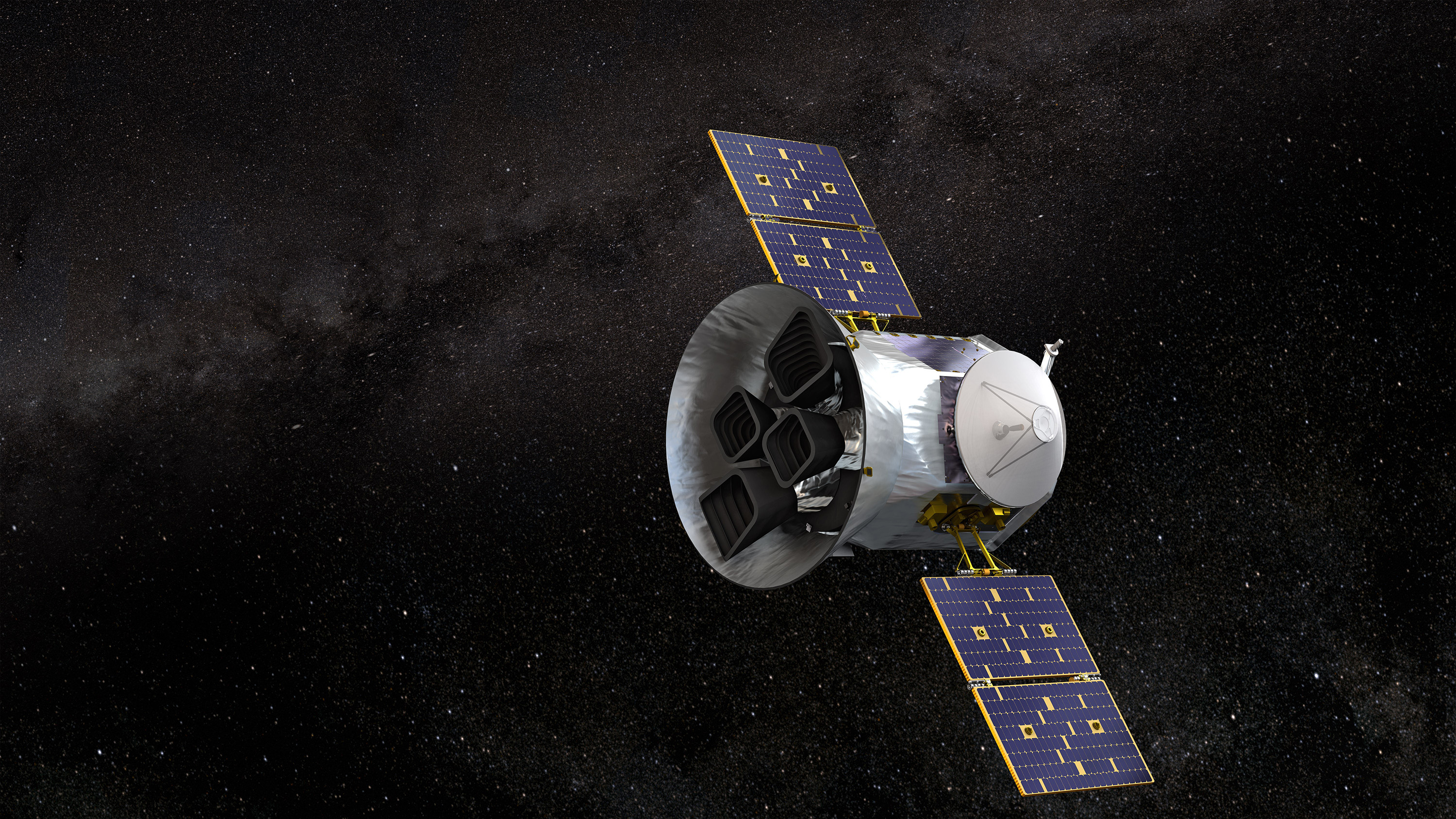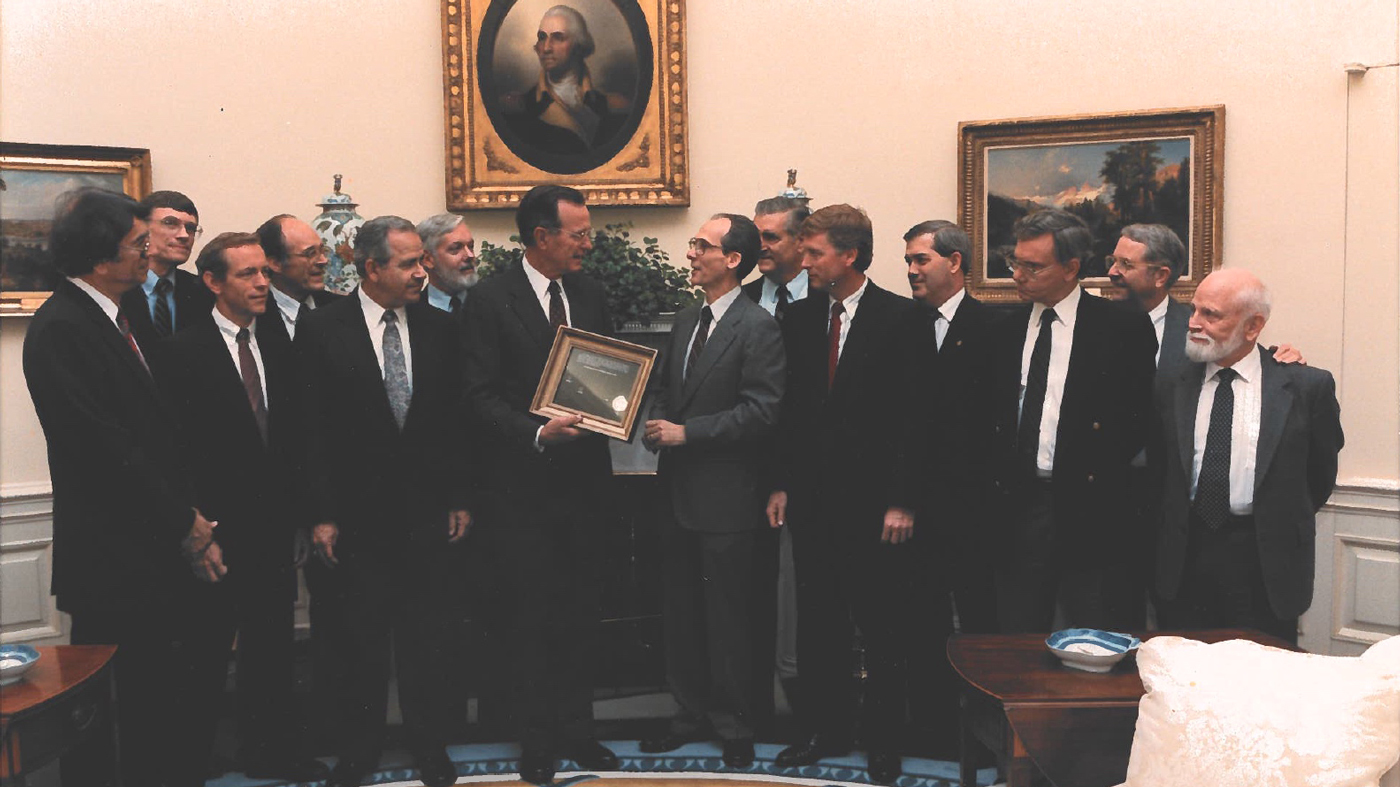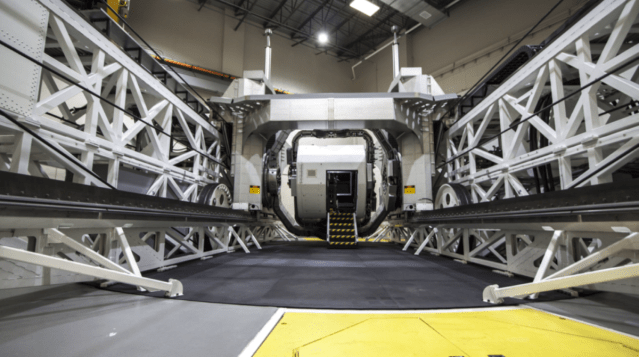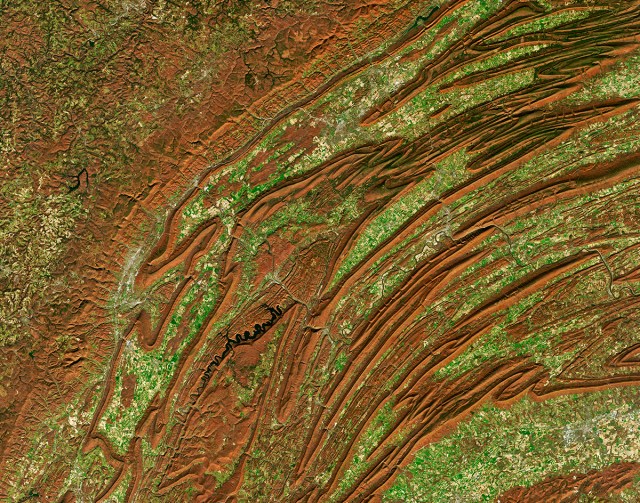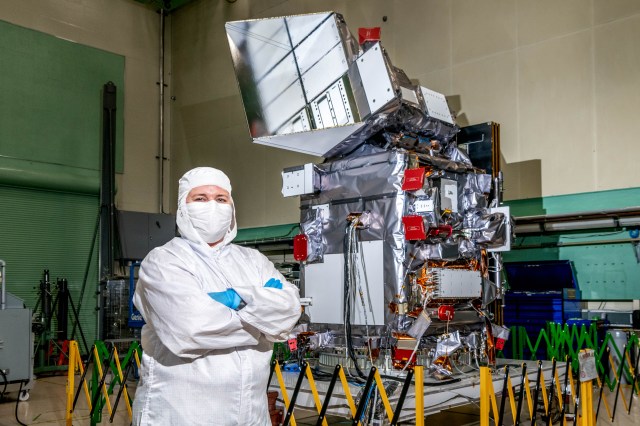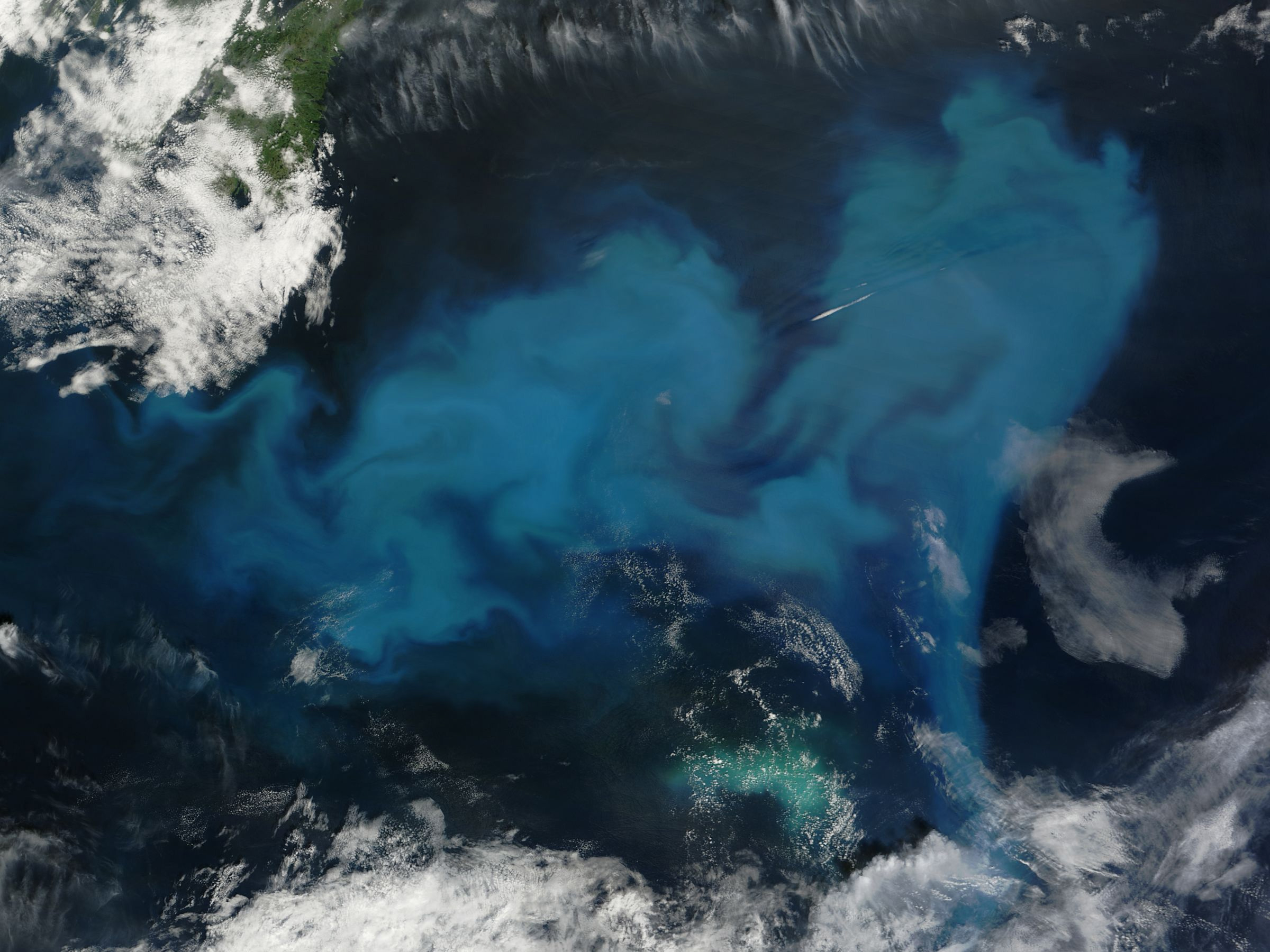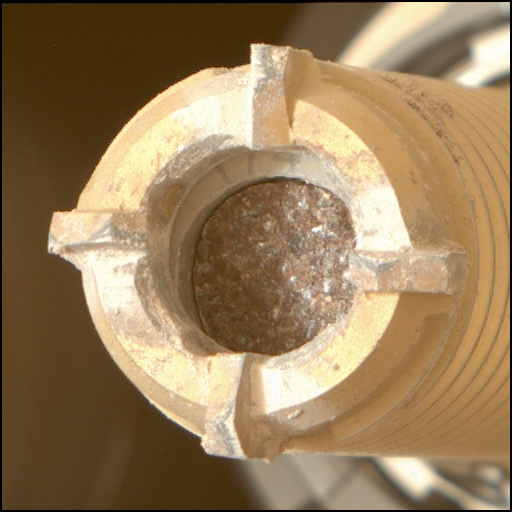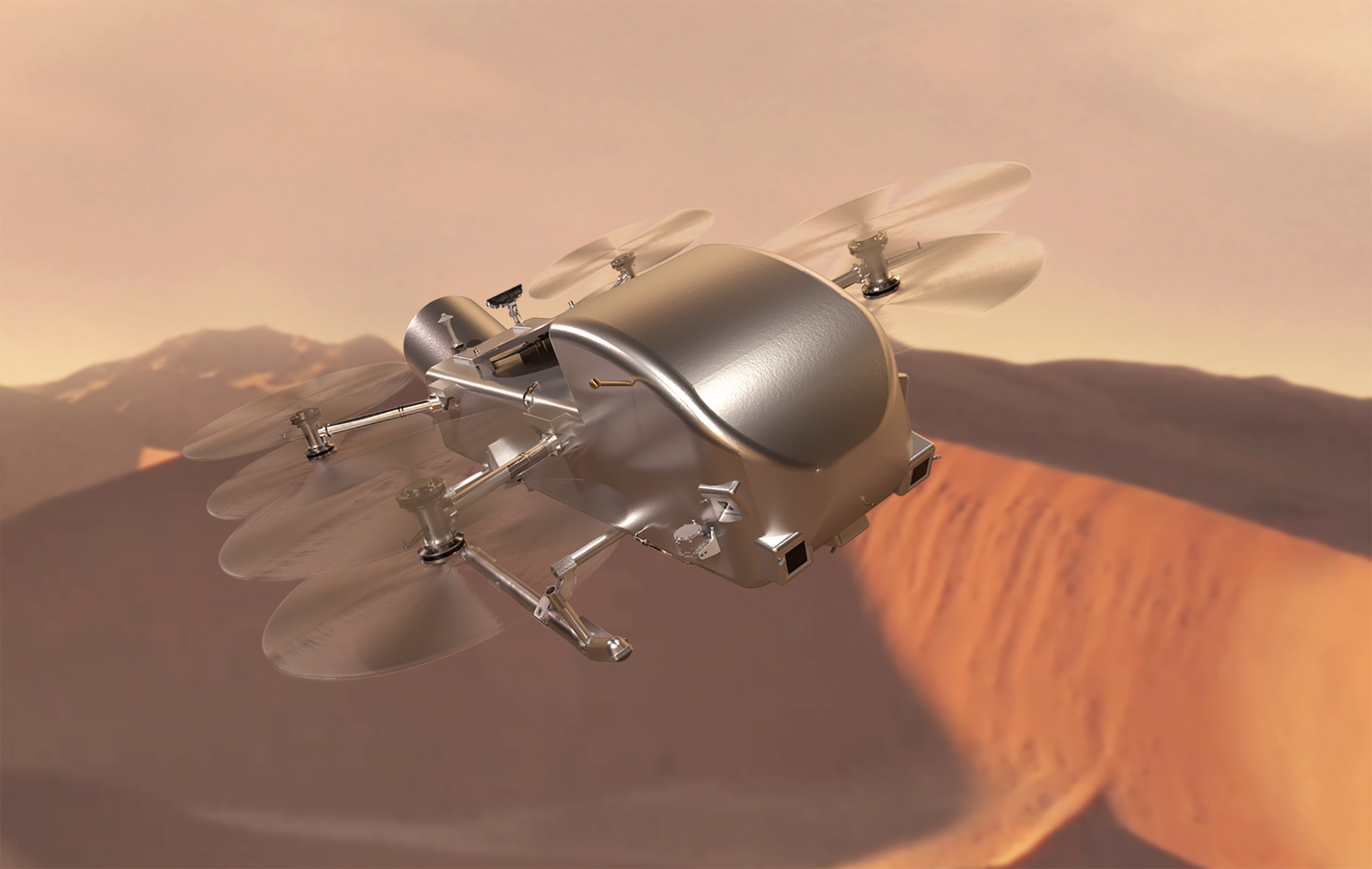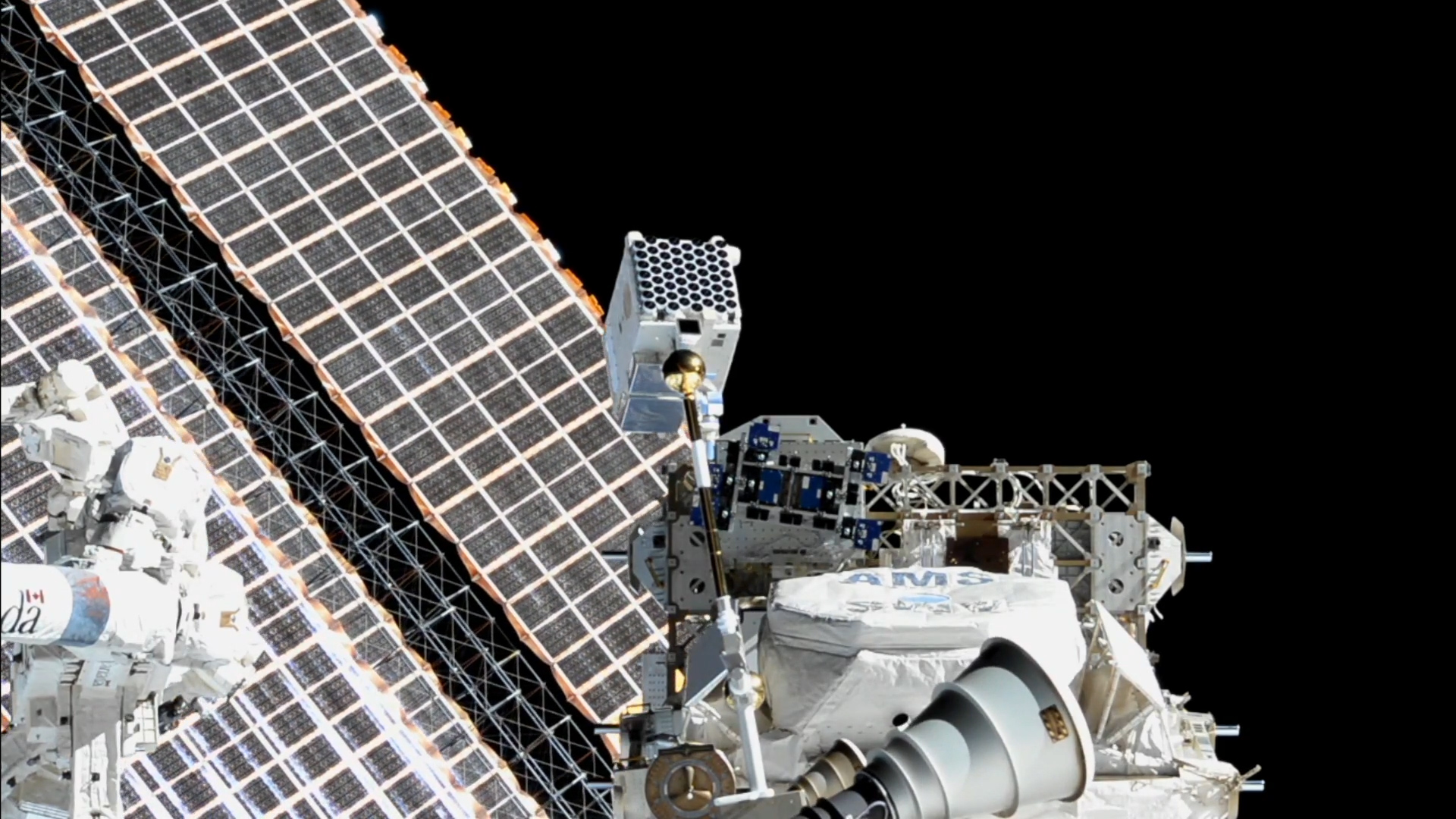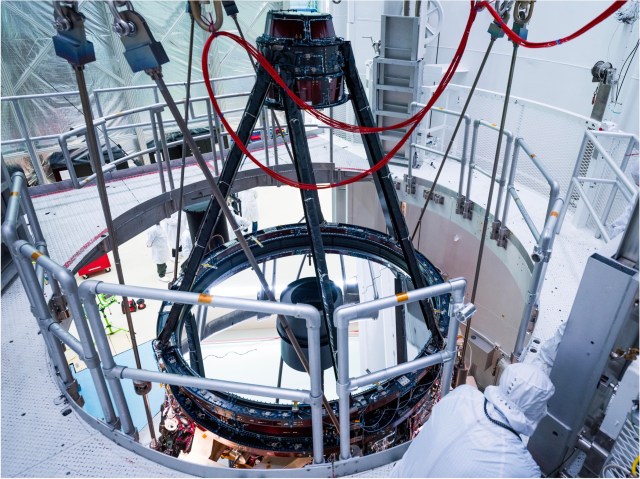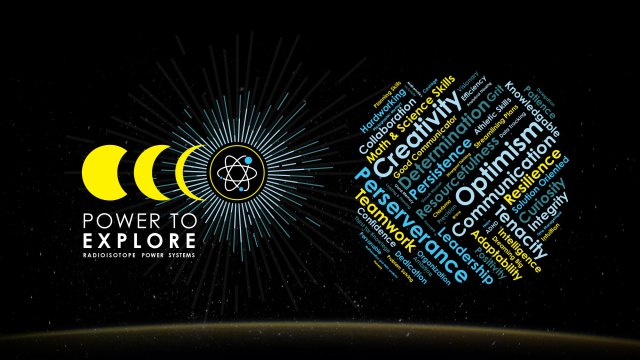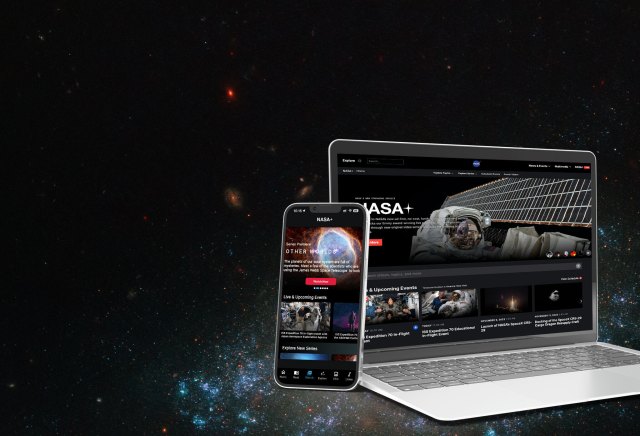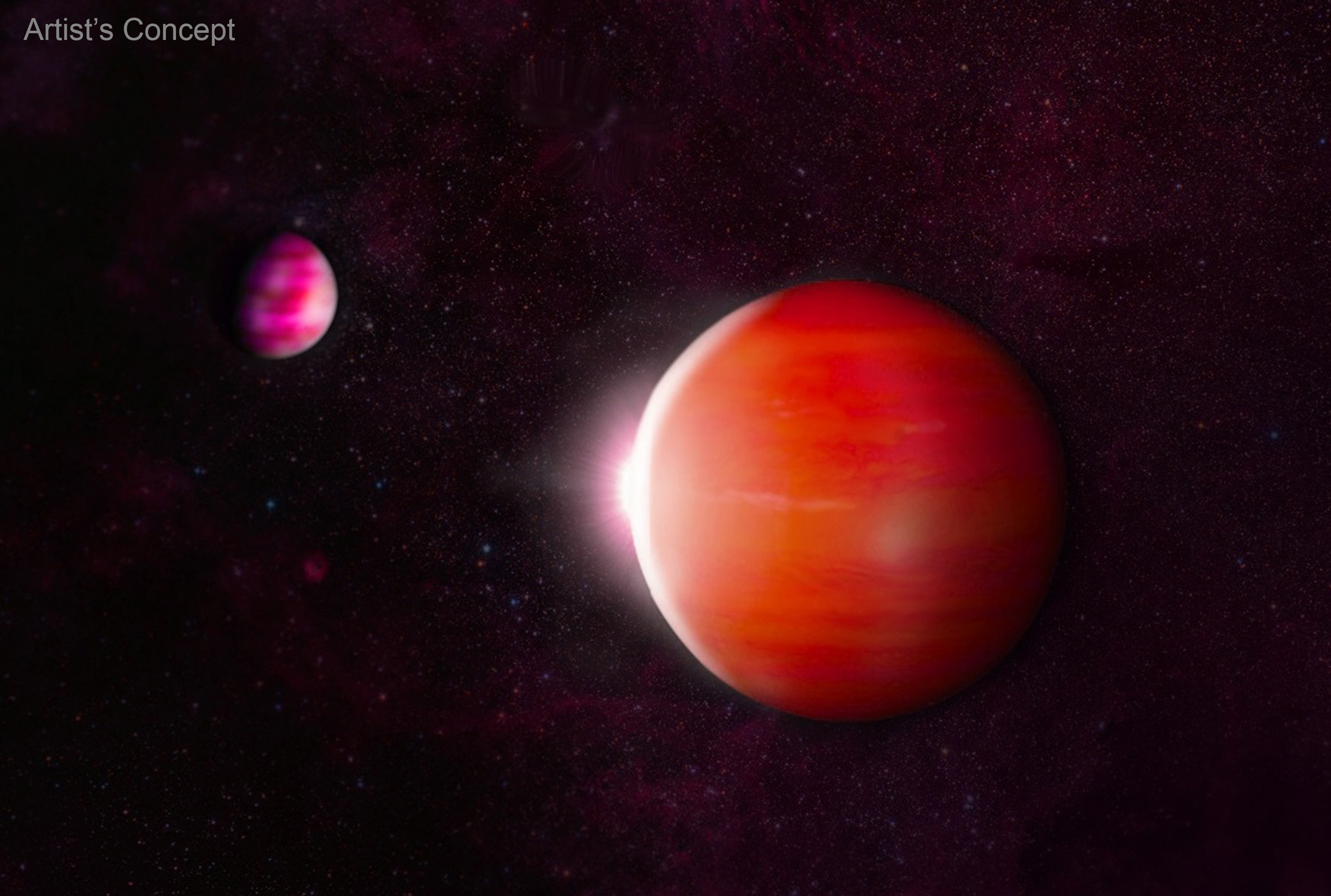NASA Grants and Cooperative Agreements
Grants Policy and Compliance (GPC) provides leadership and oversight in grants management policy and compliance to NASA’s grants community implementing government-wide and NASA specific regulations for awarding and administering grants and cooperative agreements. NASA expends over $1B a year to fund grants and cooperative agreements (CAs). NASA issues an average of over 2,000 new grants/CAs each year and manages over 8,000 open awards.
In addition to establishing and interpreting promulgated guidance, GPC is responsible for the following:
- Agency-level Audit Resolution: Single audit monitoring and reporting, HQ and Center-level coordination of Corrective Action Plans (CAPs), and audit recommendation closeout.
- Agency-level Internal Training: Identify, develop, and deliver internal training to the NASA grants community.
- Consultation and Technical Assistance: Provide consultation on the application of Federal-wide and NASA-specific financial assistance policies.
- Agency-level Compliance Activities: Assistance Listing maintenance, coordination of Office of Management and Budget (OMB) data calls, Notice of Funding Opportunity (NOFO) reviews, and coordination of the Federal Register notification process for grant-related requirements.
- Policy & Regulation Formulation & Interpretation: Establish and maintain grant and cooperative agreement policies and regulations, and interpret promulgated guidance for the NASA grants community.
GPC provides training in NASA grants and cooperative agreement regulations. The NASA grants community is encouraged to regularly check our grants and cooperative playlist on NASA’s YouTube page, for new recorded trainings.
Please note that the Grants Policy and Compliance Team does not issue, administer, or manage grants and cooperative agreements. Rather, the NASA Shared Services Center (NSSC) is responsible for issuing and managing all grants and cooperative agreements for NASA. Please visit the NSSC’s website to learn more.
Alerts to NASA Grant Community About COVID-19
The U.S. Department of Health and Human Services (HHS) ended the federal Public Health Emergency (PHE) for COVID-19 at the of the day on May 11, 2023. It is OMB’s expectation that agencies identify flexibilities that will be rescinded and archived and communicate those actions to relevant parties. As such, NASA is rescinding and archiving the guidance and flexibilities associated with COVID-19. Please see the below Grant Notice for more details.
Regulations and Guidance
Regulations
Electronic Code of Federal Regulations
- Title 2: Grants and Agreements
- 2 CFR Frequently Asked Questions
- 14 CFR 1274: Cooperative Agreements with Commercial Firms (Rescinded January 2021)
- 14 CFR 1275: Research Misconduct
Class Deviations to 2 CFR 1800 FRN
- 18-01 April 9, 2018
CLASS DEVIATION to Micro Purchase Threshold And Simplified Acquisition Threshold (No expiration date) - 17-01A January 18, 2018
CLASS DEVIATION TO 2 CFR 1800.305 Payments (No expiration date) - Archive
Guidance
Grant and Cooperative Agreement Manual (GCAM)
The NASA Grant and Cooperative Agreement Manual (GCAM) provides policy guidance to NASA award managing personnel and award recipients to implement government-wide and NASA-specific regulations for awarding and administering grants and cooperative agreements with educational and non-profit organizations; State, local, and Indian tribal governments; and for-profit organizations.
The NASA Proposer’s Guide
The NASA Proposer’s Guide is the guiding document that outlines how to apply for NASA grants and cooperative agreements. In 2023, NASA has combined the NASA Guidebook for Proposer’s Responding to a Notice of Funding Opportunity and the NASA Unsolicited Guide into one comprehensive Guide. Archived versions of the 2 separate guidebooks from previous years are available below.
- Proposer’s Guide – February 2023
- Archived Guidebooks for Proposers
- Archived Unsolicited Proposers Guidebooks
Grant Information Circulars (GIC)
- Active GICs:
- 24-02 – FY 2024 Earmark Guidance
- 24-01 – Federal Property Delegation
- 23-07 – Conflict of Interest Policy
- 23-06B – Update 2 – FCTR to FFR Transition
- 23-05 – Natural Disasters Flexibilities
- 23-03 – Updates to the GCAM – FAPIIS
- 23-02 – Recipient Integrity and Performance Matters
- 23-01 – Issuance of the FY23 GCAM
- GIC Archives
Grant Notices (GNs)
Research Terms and Conditions
The Office of Management and Budget (OMB) mandated awarding agencies adopt revisions to 2 CFR 200: Uniform Administrative Requirements, Cost Principles, and Audit Requirements for Federal Awards (Uniform Guidance). Agency implementation statements provide specific details on how participating agencies are implementing the revised Research Terms and Conditions (RTCs). In accordance with this requirement, the updated RTCs, which implement the changes to 2 CFR 200, effective November 12, 2020. This includes all supplemental appendices (Appendix A: Prior Approval Matrix, Appendix B: Subaward Requirements, and Appendix C: National Policy Requirements).
For more information, please see the NSF website.
Resources and Training
Virtual Grants Training
NASA Grants Policy and Compliance publishes videos related to the grants and cooperative agreement lifecycle including application, administration, and closeout. These videos are housed on our NASA Grants Policy and Compliance YouTube Playlist.
Resources: Grants Fact Sheets
- NASA Grant Portfolio Fact Sheet
- NASA Grants Programs and Resources
- Aeronautics Research Mission Directorate (ARMD) Fact Sheet
- Exploration Systems Development Mission Directorate (ESDMD) Fact Sheet
- Office of STEM Engagement (OSTEM) Fact Sheet
- Science Mission Directorate (SMD) Fact Sheet
- Space Operations Mission Directorate (SOMD) Fact Sheet
- Space Technology Mission Directorate (STMD) Fact Sheet
Training
- Introduction to the Grants and Cooperative Agreements Manual (GCAM)
- NASA Grants Lifecycle
- NASA Notice of Funding Opportunity (NOFO) Development and Clearance Process
- NASA Award Mechanisms
- NASA Navigating the Uniform Guidance (2 CFR 200)
Points of Contact
Headquarters Grants Policy and Compliance Team
300 E Street Southwest
Washington D.C., 20546-0001
Mail Stop: 5G77
- Antanese Crank, Chief, Grants Policy and Compliance
antanese.n.crank@nasa.gov
(202) 358-0648 - Chris Murguia, Sr. Program Analyst, Team Lead
christopher.e.murguia@nasa.gov
(202) 358-0648 - Christiane Diallo, Sr. Program Analyst
christiane.diallo@nasa.gov
(202) 358-5179 - Corey Walz, Sr. Program Analyst
corey.a.walz@nasa.gov
(202) 940-6581 - Laila Ouhamou, Sr. Program Analyst
laila.ouhamou@nasa.gov
(202) 358-0837
NASA Shared Services Center (NSSC)
Bldg 5100, Room M237
Stennis Space Center, MS 39529
Fax: (228) 813-6002
https://www.nasa.gov/centers/nssc
- Theresa Stanley, Grants Activities Branch Chief
theresa.m.stanley@nasa.gov
(228) 813-6196
Frequently Asked Questions (FAQs)
In a continued effort to provide clarifying guidance and further information on commonly asked questions and areas of concern, Grants Policy and Compliance (GPC) has compiled a listing of Frequently Asked Questions (FAQs). FAQs will be u¸dated regularly to assist the community in finding answers to your questions in one place.Z
Please note that the questions and responses outlined below are not intended to replace your first points of reference, which include 2 CFR 200 and the Grants and Cooperative Agreements Manual, but rather to provide context and general guidance on recurring questions received from the community. Should you have any questions or concerns not addressed in these resources, please feel free to reach out to GPC.
FAQ Topics (links):
General
Which office is responsible for grants policy and compliance at NASA?
Grants Policy and Compliance (GPC) is responsible for developing, managing, and promulgating Agency-wide grants management policy. GPC is located within the Procurement Management & Policy Division of the Office Procurement (OP) at NASA Headquarters.
What is the difference between a grant, a cooperative agreement, and a contract?
A grant is Federal assistance authorized by Federal law to support programs with a public purpose that the government wishes to encourage. Grants do not require substantial involvement on the part of the grant-issuing agency. A cooperative agreement is Federal assistance that establishes a relationship between the U.S. Government and a recipient in which the principal purpose of the relationship is to accomplish a public purpose of support or stimulation. Unlike a grant, cooperative agreements require substantial involvement on the part of the U.S. Government. A contract is a legally binding agreement to deliver goods and/or services in exchange for consideration for direct benefit of the Federal Government. Unlike grants or cooperative agreements, the direct beneficiary of a contract is not the public but rather the Federal Government.
Which Federal regulations govern NASA’s grants and cooperative agreements?
NASA’s grants and cooperative agreements are governed by regulations published in the Code of Federal Regulations (CFR). Specifically, NASA’s awards are governed by the regulations in Title 2 of the CFR (2 CFR). While 2 CFR consists of many parts that are applicable to NASA awards, the bulk of the regulations that impact day-to-day award implementation can be found in 2 CFR Part 200 and 2 CFR Part 1800, Uniform Administrative Requirements, Cost Principles, and Audit Requirements for Federal Awards.
Where can I find NASA-specific grant policy?
NASA-specific grant policy can be found in the Grant and Cooperative Agreement Manual (GCAM). The GCAM establishes policies and procedures that implement 2 CFR throughout the entire grants management lifecycle, and it also includes NASA’s standard award terms and conditions, and a host of other helpful information. GPC encourages all NASA award recipients, and those interested in applying for a NASA award, to review the GCAM. The GCAM can be found on GPC’s Regulations and Guidance website.
Policy Deviations
What is a deviation?
Deviations provide exceptions to award regulations, policies, or procedures when highly beneficial to either NASA or an award’s goals or fiscal stewardship. Deviations may be requested for regulations in 2 CFR and policies established in the GCAM in section 5.15.3; however, deviations are approved on a limited basis.
How can a deviation be requested?
When an award recipient or NASA program office requires an approval for an action that conflicts with NASA award regulations, policies, or procedures, the appropriate NASA staff may submit a deviation request to GPC. For more information on deviation requests, please see GCAM Section 5.15.3, Deviations.
Grant Information Circulars
What is a Grant Information Circular (GIC)?
A GIC is used for internal and public dissemination of interim grant and cooperative agreement guidance not yet incorporated in the GCAM and/or grant and cooperative agreement related information not suitable for inclusion in the GCAM, yet necessary for the administration of federal financial assistance activities.
How will I know when there is a new GIC?
All GICs will be made available on the Grants Policy and Compliance team’s external website here: Grants Policy and Compliance| NASA.
Pre-Award
What is a Notice of Funding Opportunity?
Notices of Funding Opportunity (NOFO) are the means by which the federal government announces grant and cooperative agreement funding opportunities. A NOFO will outline eligibility requirements, program funding priorities, scoring criteria, and other essential information for potential applicants to read and comply with in order to apply for NASA grants and cooperative agreements.
Where are NASA’s Notices of Funding Opportunities (NOFOs) located?
NASA NOFOs are located in the NASA Solicitation and Proposal Integrated Review and Evaluation System (NSPIRES)(https://nspires.nasaprs.com) and Grants.gov (https://www.grants.gov).
What documents should a prospective applicant review if they are interested in NASA grants and cooperative agreements?
The NASA Proposer’s Guide outlines the policies and processes for submitting responses to a NASA NOFO. All proposers applying to a NASA NOFO should adhere to the guidelines contained in the Proposers Guide to the extent invoked in the NOFO.
Where can I find information on open Notices of Funding Opportunity?
Potential applicants are encouraged to visit the NSPIRES website on a regular basis to learn of new opportunities for grant and cooperative agreement funding.
What if I have a creative idea that does not fall into an open Notice of Funding Opportunity?
The Proposer’s Guide provides guidelines for the preparation of formal unsolicited proposals for those submitters that wish to convey their creative methods or approaches to NASA. These guidelines apply to all unsolicited proposals for financial assistance that could result in grants and cooperative agreements.
I’m having trouble uploading my proposal to NSPIRES. Who can I contact?
The NSPIRES help desk can be reached at (202) 479-9376, Monday through Friday, 8 am to 6 pm ET. They can also be reached via email at nspires-help@nasaprs.com.
Proposal Budget
Does NASA have a Salary CAP for Grant or Cooperative Agreement Personnel?
NASA does not have a specific provision regarding salary caps; however, all costs related to compensation must comply with the cost principles of 2 CFR Part 200, Subpart E, which requires costs to be allowable, allocable and reasonable. When determining the allowability of salary for faculty members at Institutions of Higher Education, grant recipients shall comply with 2CFR.430 (h)(2). As outlined in this section, unless there is a prior approval by NASA, charges of a faculty member’s salary to a NASA award must not exceed the proportionate share of the Institutional Base Salary (IBS) for the period during which the faculty member worked on the award. For example, if an individual’s regular salary for an annual period is $100,000 and they spend 25 percent of their total effort during the period working on a NASA award, the proportionate share of IBS allocable to the award cannot exceed $25,000 ($100,000*.25).
Which office issues grants and cooperative agreements at NASA?
The NASA Shared Services Center (NSSC), located at the John C. Stennis Space Center in Mississippi, issues all grants and cooperative agreements for the Agency. The NSSC’s grants team includes Grant Officers and service providers that, amongst other activities, review applicants’ budgets, negotiate terms as necessary, and issue awards to the selected recipient.
How do I check the status of my NASA award that is being processed?
If your entity knows that it will be receiving a NASA grant or cooperative agreement, you can use the NSSC’s Grant Status Search to check the status of your award while in process. The Grant Status Search also provides information on supplemental actions for awards, such as administrative change supplements. The Grant Status Search website can be found here.
If my entity has been selected to receive a NASA grant or cooperative agreement, what documentation will NASA provide in the award package?
If your entity receives a NASA award, your entity will receive NASA Form (NF) 1687, NASA Grant and Cooperative Agreement, a copy of your award’s terms and conditions, and a list of applicable reports that your entity will need to submit once it starts implementing the award. The NF 1687 outlines important information such as your award number, the award’s total value and period of performance, and who your NASA Grant Officer is. Only the NF 1687 authorizes a recipient to begin implementing the project and draw down funds.
Post-Award
What system does NASA use to pay its award recipients?
NASA uses the Department of Health and Human Services’ Payment Management System (PMS) to pay award recipients. Once a recipient receives an award, they can log into PMS and draw down funding as needed. Most NASA award recipients are paid on an advanced basis, meaning that recipients will receive their payment before incurring allowable costs.
If my entity receives a NASA award, what are our post-award reporting requirements?
Your award’s specific reporting requirements will be detailed in your award’s terms and conditions. At a minimum, award recipients are required to submit an annual performance report and bi-annual financial reports. Unless otherwise specified, recipients are required to report on the Research Performance Progress Report (RPPR) data elements in their performance reports, and those data elements can be found in the GCAM. The financial reports, otherwise known as Standard Form (SF) 425, are submitted in PMS. Instructions on submitting other applicable reports, such as an annual inventory report or New Technology Reports, will be described in your award’s terms and conditions.
My entity needs more time to implement our award. How do we request a no-cost extension?
A no-cost extension (NCE) is when issued when a recipient needs more time to implement their award and additional funding is not required. NCEs must be supported by a valid justification from the recipient, and NCE requests must be submitted at least 10 days before an award’s period of performance is set to end. NCE requests may be submitted to the NSSC’s NCE request system, which can be found here.
What is an administrative change or supplement and how does my entity request one?
An administrative change or supplement is any modification to a NASA award, such as a NCE, a funded extension, Principal Investigator (PI) changes, scope modifications, a general correction to the award, or any combination of these actions. To request an administrative change or supplement, please submit your request in writing to the Grant Officer listed on your award’s NF 1687.
Can an entity’s award be suspended or terminated before the project is complete?
Yes. If an entity is found to be noncompliant with Federal regulations, NASA policy, or an award’s terms and conditions, NASA may temporarily suspend award implementation or terminate the award altogether. Prior to suspension or termination, NASA will contact the award recipient in an attempt to resolve the noncompliance.
Where can I find information relevant to career-life balance?
Most of the flexibilities available to those whose work is supported by NASA grants and cooperative agreements are addressed in 2 CFR 200 which is the common, U.S. Government-wide guidance on grants and cooperative agreements. In the context of family-friendly and medical leave, the relevant section is Section 431(b), Leave.
Can my institution’s career-life balance policies be more restrictive than 2 CFR 200?
Yes. Your institution’s policies and 2 CFR 200 determine whether costs associated with family or medical accommodations can be charged to your NASA-issued grant or cooperative agreement. Any conversation about career-life balance should begin with your institution.
Can a NASA grant’s period of performance be extended for researchers who take a leave of absence due to dependent care or other responsibilities?
As stated in the GCAM and above, award recipients are allowed to initiate one NCE on their own. So, theoretically, a recipient could initiate an NCE due to a personnel absence. Subsequent NCEs need prior approval from NASA, and NASA would need to determine if extending the award is in the Agency’s best interest. However, per §200.308, Revisions of budget and program plans, if a key person disengages from a grant for more than 3 months or reduces their efforts by 25% or more for any reason, then the recipient must obtain prior approval of the disengagement or effort reduction from the cognizant NASA Grant Officer.
Can grant recipients use award funds for dependent-care expenses?
Dependent-care expenses are only allowable when the PI’s institution has a written policy in place that allows the institution to pay for employees’ dependent care. If the institution has such a policy in place, then the institution could charge those costs to a NASA award as either fringe benefits or indirect costs (also known as Facilities and Administrative Costs)
Can grant funds be used for dependent travel or childcare at conferences?
2 CFR 200.475, Travel Costs, notes that temporary dependent-care costs beyond regular dependent-care that are the direct result of travel to conferences are allowable. Travel costs for dependents is unallowable, except for travel with a duration of six months or more with prior approval from a NASA Grant Officer. Moreover, these dependent care costs and travel costs are allowable only if they are consistent with the PI institution’s established travel policy.
Can grant funds be used to pay for employee leave taken for dependent-care responsibilities?
When it comes to questions of employee leave for dependent care or dependent-care costs, those benefits and expenses are only allowable if the PI’s institution allows for them in their written policies and the costs conform to the requirements in 2 CFR 200, Subpart E, Cost Principles. If the institution has policies regarding these benefits, they can charge them as fringe benefits or indirect costs to a NASA award.
Can institutions request supplemental funding or to change a current budget to support additional personnel to sustain research when the PI is on family leave?
NASA has the discretion to provide additional funds on a case-by-case basis. NASA has not established a centralized source of funding for these supplements. Please contact your NASA Program Officer or Technical Officer to inquire as to the availability of funds. Formal requests must come from your entity and include a budget with a narrative. Note that prior approval for changes to the budget for these costs can only be given by a NASA Grant Officer.
Do the provisions in the previous question apply to NASA Postdoctoral Program (NPP) Fellows?
No. Please see the NASA Postdoc page for further information. NPP Fellows are neither employees of NASA nor the NPP Contractor. However, published NPP policies accommodate prolonged absences and are explained on the NPP Policies and Procedures Page.
What are honoraria? Are honoraria allowable under NASA grants or cooperative agreements?
2 CFR 200 and the NASA Grant and Cooperative Agreement Manual (GCAM) do not define honoraria. However, honoraria are defined by the Office of Government Ethics as, “a payment of money or anything of value for an appearance, speech, or article, excluding any actual and necessary travel expenses incurred by the recipient and one relative.” Based on this definition and the cost principles in 2 CFR 200, Subpart E, honoraria are unallowable on NASA grants and cooperative agreements when the primary intent of the honoraria is to confer a distinction on, to symbolize respect, esteem, or admiration for, the subject recipient of the honoraria and for any guest or relative.
Honoraria should not be confused with “speakers’ fees” which are allowable activities as outlined in 2 CFR 200.432 Conferences
Can a NASA grant recipient impose an uninterrupted service delivery requirement on contracts funded through a NASA grant?
Yes. Per OMB’s Controller Alert 23-05 (CA-23-05), the restriction on unreasonable requirements does not include uninterrupted service delivery requirements.
2 CFR 200.319 (b) states that “in order to ensure objective contractor performance and eliminate unfair competitive advantage, contractors that develop or draft specifications, requirements, statements of work, or invitations for bids or requests for proposals must be excluded from competing for such procurements. Some of the situations considered to be restrictive of competition include but are not limited to: (1) Placing unreasonable requirements on firms in order for them to qualify to do business;”
OMB has clarified through CA-23-05 that generally it does not consider a requirement to provide uninterrupted service delivery requirements, unreasonable. OMB also clarified that not all awards and subawards require contractors to ensure uninterrupted operation and that this determination should be make based on the particular project.
Closeout
What does the award closeout process entail?
Closeout occurs after an award’s period of performance has expired. During award closeout, NASA verifies that recipients’ final reports and any applicable deliverables have been submitted. If the recipient is owed funding for allowable costs, NASA will make final payments to the award recipients, and if the recipient has any unexpended Federal funds, NASA will work with the recipient to return those funds to the Agency. Moreover, if the recipient purchased equipment for which title is vested in the Federal Government, NASA will provide equipment disposition instructions to the recipient to ensure the equipment continues to be used in a productive manner after the award has expired.
How long does NASA have to close out an award after it has expired?
Per 2 CFR 200.344, Closeout, NASA must make every effort to complete the closeout process no later than one year after an award’s period of performance has expired.
What do NASA grant and cooperative agreement recipients need to do so that their award may be closed out?
Within 120 days of an award’s period of performance expiring, recipients must submit all applicable final reports as detailed in their award terms and conditions to their Grant Officer. The NSSC may also contact the award recipient and provide additional closeout instructions as necessary.
What happens if an award recipient does not submit their final reports on time?
Per 2 CFR 200.344, Closeout, if an award recipient does not submit all applicable final reports within one year of their period of performance expiring, NASA must report that recipient’s failure to comply with their award’s terms and conditions in SAM.gov contains information to support the Federal award decision making process, and Federal agencies review the information in this system when making decisions about grants, cooperative agreements, and contracts.
Important Links
- Grants.gov: Grants.Gov is the electronic storefront for Federal grants and cooperative agreements.
- Federal Demonstration Partnership (FDP): The Federal Demonstration Partnership (FDP) is a cooperative initiative among federal agencies and institutional recipients of federal funds.
- Federal Register: The Office of the Federal Register (OFR) informs citizens of their rights and obligations by providing ready access to the official text of Federal laws, Presidential documents, administrative regulations and notices, and descriptions of Federal organizations, programs and activities.
- NASA Solicitation and Proposal Integrated Review and Evaluation System (NSPIRES): This web site allows immediate access to Research Opportunities currently being offered by the NASA Offices listed below at NASA Headquarters.
- NASA’s Office of Small Business Programs: The Office of Small and Disadvantaged Business Utilization (OSDBU) at NASA Headquarters is responsible for the development and management of NASA programs to assist small businesses.
- NASA Shared Services Center (NSSC): The mission of the NASA Shared Services Center is: “To establish a consolidated shared services organization that will provide higher quality, more cost effective and efficient services for select NASA business and technical services.”
- NASA Online Directives Information System (NODIS) Library: Online repository for NASA policy directives (NPD) and NASA procedural requirements (NPR).
- Small Business Administration (SBA): The SBA’s mission is to maintain and strengthen the nation’s economy by aiding, counseling, assisting, and protecting the interests of small business and by helping families and businesses recover from national disasters.
- NASA’s Small Business Innovative Research (SBIR) and Small Business Technology Transfer (STTR) Programs: The NASA SBIR and STTR programs provide an opportunity for small, high technology companies and research institutions (RI) to participate in Federal Government sponsored research and development (R&D) efforts in key technology areas.
- Sam.gov: The General Service Administration’s (GSA) Office of the Integrated Award Environment (IAE) is consolidating government-wide acquisition and award support systems into one new system—beta.sam.gov. SAM.gov. hosts sites for entity registration and exclusions, Assistance Listings, Contract Data Reports, Contract Opportunities, and more.
- Assistance Listings: Any entity looking for federal assistance can conduct preliminary planning using SAM. Browse assistance listings across all government agencies to form a “big picture” of funding options.

